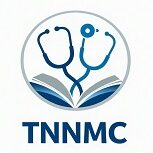Dual degree nursing programs have emerged as key parts of this transformation in nursing education and career training pathways, providing comprehensive approaches to healthcare training with both nursing education and other disciplines combined into one program. Pursuing such degrees opens doors for diverse career options and widens scopes of practice amongst nursing professionals.
Exploring Dual Degree Nursing Programs
At the core of dual degree nursing programs lies an integrative structure designed to combine nursing with complementary disciplines over an varying length of time, depending on which degrees are involved. Common combinations include Bachelor/Master of Science (BS/MS) and Master of Science in Nursing/Master of Business Administration (MSN/MBA), among others, designed to prepare nurses for multiple roles within healthcare management, research and clinical practice settings.
Outstanding Dual Degree Nursing Programs
Institutions across the nation provide outstanding Dual Degree Nursing (DDN) programs. At Rochester University for instance, its DDN program emphasizes both clinical expertise and research acumen – something not all institutions offer. Penn Nursing stands out for offering numerous dual degree options that accommodate different interests and career objectives, while Johns Hopkins School of Nursing’s MSN/MBA Dual Degree Program brings nursing leadership together with business acumen to form one program. Agnes Scott College and Emory University collaborate on their 3 – 2 Dual Degree Nursing program, while Creighton University also offers the Nursing Dual Degree (BSN). Both these programs aim to offer comprehensive nursing education that addresses contemporary healthcare demands.

Challenges and Considerations for Project Implementation
Dual degree nursing programs come with many advantages; however, there are also distinct drawbacks. One key hurdle lies in competition for admission due to their increasing popularity; furthermore, dual degrees often present heavier workloads compared to standard degrees which can create stress for students as they attempt to balance two disparate fields of study simultaneously. As with any educational investment, prospective students should carefully consider both their professional goals as well as personal capacities before enrolling.
Advantages of Dual Degree Nursing Programs
Dual degree nursing programs offer more than simply extra qualifications; they’re an opportunity for enhanced career prospects and potentially higher earnings potential. By honing their diverse set of skills and knowledge gained through these programs, nurses gain tools they need to tackle complex healthcare issues more easily while taking leadership roles within healthcare innovations or policy.
What Are Different Types of Dual Degree Programs
Outside MSN/MBA and BS/MS programs, other common combinations include RN-BSN/MSN programs which are particularly advantageous to nurses looking to fast track their education journey. With online options that make scheduling convenient for working professionals and shorter degree completion timelines than separate degrees. In such programs, nurses can earn both degrees concurrently!
Graduates from MSN/MBA programs stand to benefit in numerous ways from these dual degree programs, not only being equipped to assume advanced practice nursing roles but also developing leadership and management abilities essential for high-level positions within healthcare organizations. Their combined education in nursing and business enables them to have an in-depth knowledge of both healthcare and business that makes them invaluable assets in today’s ever-evolving healthcare environment.
Educational Structure Dual degree nursing programs typically follow a progressive curriculum to allow their students to complete both degrees simultaneously within four years or less, providing a well-rounded education, including classes from nursing as well as any complementary areas of study. Many programs also permit this, helping maximize both time and resources invested by taking advantage of simultaneous practice experience requirements for both degrees.
Selecting an Appropriate Dual Degree Nursing Program
Selecting an effective nursing program requires careful consideration of various factors, including its curriculum alignment with career goals, its length, duration and reputation/accreditation of institutions – decisions about these matters are of crucial importance as their consequences could have lasting ramifications on a nurse’s professional journey.
Success Stories and Case Studies.
Real-world effects of dual degree nursing programs are best illustrated through success stories and case studies. Graduates from these programs frequently find themselves at the forefront of nursing innovation and leadership – often making an immediate and global difference to healthcare outcomes.
Dual degree nursing programs represent an unprecedented step forward for nursing education, offering myriad advantages to those willing to embark on this challenging yet fulfilling educational path. Dual degrees offer students who aspire to a dynamic nursing career that marries art with specific expertise an exceptional path toward their goal.
Dual degree nursing programs give nurses the chance to earn two postgraduate degrees simultaneously, increasing their prospects of taking leadership or administrative roles within healthcare organizations and improving patient care delivery. Through this unique educational path, nurses gain the knowledge and abilities required for excelling in various roles while making meaningful impacts upon patient care delivery and healthcare organizations alike. While holding just a single graduate degree may offer opportunities in clinical leadership positions alone, those holding multiple graduate degrees open themselves up to executive healthcare roles such as Healthcare Administrator, Chief Nursing Officer or Nurse Director roles.
These programs typically combine an MSN with another master’s degree from another field of study; main options available to nurses may include MBA, MHA or MPA degrees.
This guide presents an introduction to dual degree programs as well as information regarding all of their options available to nurses.
How Do Dual Degree Nursing Programs Operate?
Dual degree nursing programs offer students a unique educational path that combines nursing studies with another field. These dual degree tracks aim to give students access to multiple fields that complement nursing studies such as administration, management, public health or healthcare administration; with this goal in mind students will become prepared for roles beyond traditional clinical environments.
Dual degree nursing programs typically allow students to pursue two degrees simultaneously in four years or less; depending on the program. While double majors typically focus on areas within a single degree program, dual degrees typically involve an extensive body of coursework leading to two separate diplomas.
One key benefit of dual degree programs is giving students access to classes from both areas, leading to an all-round educational experience. For instance, in an MSN/MBA dual degree program students engage with nursing theory, research, statistics as well as organizational leadership courses such as finance and marketing for optimal business management knowledge and practice. These dual degrees give graduates comprehensive expertise both nursing practice and business operations management.
Additionally, these programs allow the concurrent completion of practice experience requirements for both degrees – saving not only time but resources as students no longer have to fulfill two separate sets of clinical requirements.
Popular dual degree nursing programs include MSN/MBA and RN-to-Bachelor of Science in Nursing/Master of Science in Nursing (RN-BSN/MSN), as well as combinations with Master of Public Health (MPH), Master of Healthcare Administration (MHA), or even Doctor of Philosophy (Ph.D) degrees.
Dual degree nursing programs present numerous advantages, from expertise in two fields and reduced study times to faster career advancement, but can also present unique difficulties. These may include intense competition for admission and higher workload compared to standard degree programs – and spreading oneself too thin across different areas of study. Prospective students should carefully consider their career goals, commitments and ability to withstand an intensive educational path before making this decision.
These insights are drawn from data provided by Registered Nursing and Post University institutions.

Are Dual Degree Nursing Programs Right for Me?
Assessing whether a Dual Degree Nursing Program is the appropriate choice requires carefully considering your career goals, educational ambitions, personal circumstances and ability to cope with rigorous academic programs. Here are some key considerations:
Dual Degree Nursing Programs Are Great for Anyone Who…: Dual degree programs provide the ideal way for clinicians looking to combine clinical skills with skills from other fields like business, public health or healthcare administration. A dual degree can also prove valuable if your career goals involve leadership roles such as policy-making or require multiple skill sets such as healthcare administration or healthcare administration administration.
Academic and Professional Background: Consider both your current educational qualifications and work experience when making this decision. For instance, if you are currently an RN looking to move into management or advanced clinical roles then an RN-BSN/MSN could be ideal.
Workload and Time Management: Dual degree programs tend to be more challenging than single degrees, often including over 50% of each degree’s coursework in one program. Assess your capacity to successfully navigate an intensive academic schedule if you intend on working or taking on other significant responsibilities simultaneously.
Consider Your Finances: Carefully assess all potential costs involved with attending this program, such as tuition fees and living costs; scholarship/financial aid might also be offered but it’s crucial that you fully grasp this commitment prior to making any commitments or accepting scholarships or aid packages offered by other programs.
Admission Competition and Requirements: Admission requirements to these programs may be highly competitive with stringent admission standards. Before enrolling, take an inventory of your academic credentials as well as readiness to meet such rigorous admission standards.
Long-Term Benefits and Short-Term Challenges: It is important to carefully weigh both the long-term benefits of dual degree programs as well as any short-term challenges involved with them. A dual degree can open doors to increased career prospects, higher earning potential and unique combinations of skills – but also requires significant dedication and hard work on your part.
Personal Life Balance: Make an assessment of how pursuing two degrees may influence other areas of your life such as family responsibilities, social obligations and overall well-being.
Consult Professionals and Advisors: Seek advice from academic advisors, professionals in your field and current students or alumni of dual degree programs who can give valuable insight into its demands and benefits. They could prove indispensable!
Research Specific Programs: Different institutions offer dual degree programs with various combinations and structures, so when researching programs of interest it is essential to familiarise yourself with its curriculum, duration, format (online vs in person), as well as its reputation in order to make an informed decision.
Accreditation and Quality of Education: Before choosing any programs to study for nursing licensure exams, be certain that their accreditation and recognition in the profession have already been verified by peers in your chosen specialty field. Quality education will only serve your future career development by helping develop its strength.
As previously discussed, enrolling in a dual degree nursing program should reflect your career aspirations, educational goals, personal circumstances and ability to meet its demands. Assemble as much information and advice from multiple sources before making this important decision.
To gain more insight into this decision-making process, look to resources such as Registered Nursing and Post University which offer extensive insight into dual degree nursing programs.
Can You Complete an Online Dual Degree Nursing Program?
Yes, it is possible to complete an online dual degree nursing program. With more and more online dual degree programs becoming available to working professionals and those juggling other commitments which make attending traditional on-campus programs challenging, online dual degrees provide flexible education that matches up with on-campus options in terms of qualifications gained and content covered.
Here are a few key details of online dual degree nursing programs:
Program Types: Online dual degree nursing programs come in various combinations, like an RN-to-BSN/MSN degree program; MSN/MBA programs or MSN/MPH. Each is specifically tailored towards different career goals – leadership in nursing practice or healthcare administration are examples.
Flexibility: Online programs offer many advantages that are particularly advantageous to working nurses with family responsibilities or those needing to complete coursework quickly at their own pace, including flexibility. Students often complete their coursework on their own timeline which makes online studies ideal.
Clinical Requirements: While theoretical aspects can often be completed online, nursing degrees typically include clinical practice components. Many online programs partner with healthcare facilities so students can fulfill these requirements locally.
Interactivity and Support: Modern online programs are highly interactive, featuring virtual classrooms, discussion forums and access to digital resources. Students also enjoy faculty support as well as access to student services.
Accreditation: When selecting an online program for study, its accreditation status should be checked carefully as accreditation stands as proof of quality and will help your degree gain acceptance into professional settings.
Technology Requirements: Students need access to reliable computers and internet connections as well as some familiarity using online learning platforms.
Time Commitment: While online programs provide flexibility, they still require significant amounts of your time commitment similar to traditional programs if combining work and studies simultaneously.
Before selecting an online dual degree nursing program, it’s essential that you conduct extensive research into each program individually, understand its technology requirements, and verify if it will meet both your educational and career objectives. Furthermore, investigating accreditation status as well as support structures available for online learners are equally crucial components.
For further insight into online dual degree nursing programs, Registered Nursing and Post University offer insightful articles.
Read more
Nursing Educator Career Overview
Pediatric Military Nursing: Caring for Young Patients
Importance of Legal Nurse Consultants in the Medical Field



